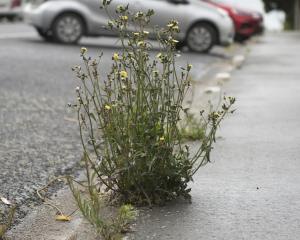Vegetables
Many types of vegetables can be sown this month, weather permitting.
Once early sown peas are well up, fortnightly sowings of small quantities of peas can begin, to give crops over a longer period. Peas like good, firm soil, not too heavily manured, with lime added.
Onions can be sown now. Rich ground is required for good growth so dig rotted manure into the soil with some all-purpose fertiliser, such as Nitrophoska Blue. Sow spring onion seed no more than 0.5cm deep and firm the soil over them.
White and golden turnips and spinach, as well as lettuce, radish and other salad plants, can be sown as soon as the soil is in suitable condition. If mud clings to your boots and garden tools, it is too wet, so wait for sun and wind to dry the soil. At this time of year, seeds can be sown quite shallowly to a depth of about twice to three times their size as it is unlikely they will dry out before getting established.
Brussels sprouts need a long growing season and should be the first winter vegetable sown. Sow thinly in a warm spot and thin if necessary when the seedlings have two or three true leaves.
Leeks, which also need a long growing season, can be sown this month for planting out later.
It is too early to sow celery outdoors, but seed can be put into trays of seed-raising mix in an unheated glasshouse.
Pumpkin, marrow, cucumber and tomato seeds can be sown in seed trays or pots in a heated glasshouse or warm spot indoors for planting out in late October to early November, when all danger of frost has passed.
Flowers
Hardy annuals for the flower garden can be sown now and again next month. Sow them where they will flower, then thin as they grow. Poppies, candytuft, larkspur, Godetia, cornflower, mignonette, Clarkia, sweet sultan and scabious are old favourites that grow well in average soils.
Half-hardy annuals, such as zinnias, asters and bedding dahlias — actually a perennial — sown under glass for planting out in November should have germinated now. However, there is still time to sow seed.
Sow Primula seed thinly in seed-raising mix. Cover with a sheet of glass, then a sheet of cardboard. Keep the soil moist and seedlings will appear in three or four weeks. When they are large enough to handle, lift the seedlings out and plant where they can enjoy summer shade in the middle of the day. Transplant to their flowering position in late autumn. They will flower next spring.
New growths of fuchsias, fibrous-rooted begonias, abutilons and other plants can be cut off at this time of the year and put into pots of moist, sandy soil to strike new plants.
Fruit
Aphids are small sucking insects responsible for damaging leaves and spreading disease. Aphids can be killed with ready-to-use commercial mixes available in trigger-spray bottles. When fruit trees are just showing tiny green leaf tips, a copper oxychloride spray is advised. Copper oxychloride controls a wide range of fungal and bacterial diseases on fruit, vegetables and roses, including black spot, fire blight, leaf curl, downy mildew and rust. As with any spray, thorough coverage of all foliage, buds and stems is necessary for good disease control. Spray when foliage is dry and the weather calm.







